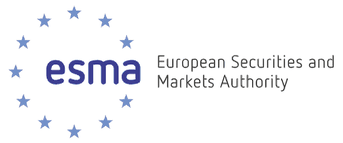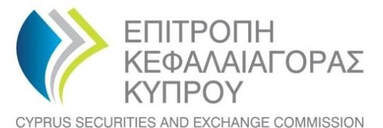The Definitive Guide to Forex Regulation around the World
New Zealand only hosts a handful of regulated forex brokers licensed by the national regulator, the Financial Markets Authority. Yet, many overseas brokers are attracting New Zealand residents. Our guide covers Europe, Australia, the UK, Cyprus, Vanuatu and Belize.
Updated 17 July 2024
The forex market is decentralised, so no single global regulatory agency governs the forex trading industry. It is regulated on a country-to-country basis. Most jurisdictions around the world have national regulatory agencies that oversee the brokers operating in their territory, and some countries have more than one regulator. In some countries, forex and CFD trading isn’t regulated by their financial markets regulatory authority. As you can imagine, that creates a lot of ambiguity for investors.
We understand the world isn’t perfect, and there are valid reasons why a New Zealander would want to trade with an overseas forex broker. This guide explores the various forex and CFD trading regulatory regimes worldwide.
We explore different types of regulatory agencies, known as National Competent Authorities worldwide, and discover how the laws regarding forex trading differ between jurisdictions.
Know this first:
Summary:
Our Guide Covers:
The forex market is decentralised, so no single global regulatory agency governs the forex trading industry. It is regulated on a country-to-country basis. Most jurisdictions around the world have national regulatory agencies that oversee the brokers operating in their territory, and some countries have more than one regulator. In some countries, forex and CFD trading isn’t regulated by their financial markets regulatory authority. As you can imagine, that creates a lot of ambiguity for investors.
We understand the world isn’t perfect, and there are valid reasons why a New Zealander would want to trade with an overseas forex broker. This guide explores the various forex and CFD trading regulatory regimes worldwide.
We explore different types of regulatory agencies, known as National Competent Authorities worldwide, and discover how the laws regarding forex trading differ between jurisdictions.
Know this first:
- The FMA does not have jurisdiction over forex brokers licensed overseas. If you have a claim against an overseas broker or that company goes bankrupt or has its license suspended or revoked, it’s unlikely there will be any recourse or compensation.
- Trading with an unregulated broker is hazardous; even if the operator has the best intentions, a poorly managed business can become insolvent. If anything goes wrong, no one can help you.
- Trading forex and CFD instruments are highly speculative and only suitable for advanced traders.
Summary:
- New Zealand is home to eight brokers offering leveraged forex and CFD products. Due to the lack of choice and competition, some traders see the appeal of using overseas brokers. Read our comparison of four New Zealand regulated forex brokers.
- To learn more about how forex and CFDs are regulated in New Zealand, read the regulation section from our Guide Contracts for Difference Trading in New Zealand.
- Leveraged over-the-counter (OTC) forex trading is regulated separately from exchanging foreign currencies.
- Forex brokers should be regulated, as it gives them standards to follow and establishes trust with their clients and partners. Most banks and liquidity providers will refuse to cooperate with an unregulated broker.
- Financial markets regulators, like the FMA, take inspiration from other regulators, such as ASIC in Australia or the FCA in the UK.
Our Guide Covers:
Introduction to forex regulations
The concept of regulations is straightforward; they are present in many industries. Regulators regulate an industry or sector by establishing standards and ensuring that participants adhere to those standards. For example, according to the Productivity Commission, New Zealand has over 200 regulatory agencies. These agencies regulate consumer rights, food safety, intellectual property, tourism, education, health care, and many other aspects of society.
What do forex brokers regulate?
Financial markets regulators, like the New Zealand Financial Markets Authority, regulate the forex industry in their country. Forex regulators set requirements and issue licenses, establish standards, such as capital requirements, fitness and proprietary of shareholders, directors and employees, handle complaints, enforce risk disclosures and govern which products can be sold, how they are offered and advertised. Besides just setting rules, forex regulators can impose fines, restrictions and other penalties.
Most forex regulators have special directories on their websites where you can look up the name or license number of a broker to see if they are regulated and if their licence is valid. For example, the FMA has a searchable list of licensed entities. By checking the broker’s regulatory status with the regulator, you can be sure that you are trading with a legitimate broker.
Most forex regulators have special directories on their websites where you can look up the name or license number of a broker to see if they are regulated and if their licence is valid. For example, the FMA has a searchable list of licensed entities. By checking the broker’s regulatory status with the regulator, you can be sure that you are trading with a legitimate broker.
Overview of forex regulatory functions
While not all forex regulators perform all functions described below, this is an overview of how forex is regulated:
- Issue licenses to firms that have met their licensing requirements and reject applications for companies that fail to meet licensing requirements.
- Investigate any complaints or suspicious activities and proactively monitor the conduct of licensed entities.
- Establish reporting standards and require regular reports and audits to ensure brokers comply with their obligations.
- Warn consumers about unauthorised firms, report scams and fraud and promote financial literacy.
- Promote or operate deposit protection schemes to protect customers funds if the forex broker fails.
- Require customer funds to be kept in segregated bank accounts and never used to support company operations. Some regulators set requirements to determine which banks can be used to hold customer funds.
- Require risk disclosures to be published to traders, informing them of the risks associated with trading forex and CFD instruments.
- Prohibit any financial incentives to traders, such as bonuses or rebates, to encourage them to open trading accounts.
- Evaluate the operating processes, anti-money laundering procedures, conflicts of interest, remuneration for employees, business continuity, disaster recovery, risk assessments, cybersecurity and other elements of the business.
- Enforce product intervention measures on how products are sold to certain customers. For example, regulators might require brokers to apply limits on leverage, offer negative balance protection and fixed margin call levels.
- Require brokers to follow best execution rules, meaning they execute their clients’ orders at the best possible price.
- Establish local substance requirements, such as a registered local company, physical offices, specific roles and headcount.
- Require brokers to have a customer complaints procedure and maintain records of all customer communications, including phone recordings.
Forex trading regulators around the world
While most countries have a dedicated agency for regulating over-the-counter forex trading, some countries use their central bank to regulate the industry. For example, forex is regulated by the Central Bank of Ireland in the Republic of Ireland.
On the other hand, some countries don’t even regulate OTC forex trading. For example, there are only two countries in Africa with forex regulations. In contrast, some countries have multiple regulators. For example, in the United Arab Emirates, forex is regulated by the Central Bank of the United Arab Emirates, the Securities and Commodities Authority, Dubai Financial Services Authority and the Abu Dhabi Global Market (ADGM) Financial Services Regulatory Authority.
Forex and CFD traders are used to dealing with risk, but trading with unregulated brokers takes these risks to another level. To ensure your funds are secure, it is incredibly important to only deal with brokers authorised by a reputable regulatory authority, especially those with strict order execution and client money rules.
Each country may have a different approach to regulating its financial markets because they see different risks and priorities for their consumers and market participants.
In 2018, all European brokers, among other things, severely restricted leverage for retail traders, limiting leverage to a maximum of 1:30 on major forex pairs; Australia replicated this in 2021.
Since there are so many countries where forex brokers are registered, some traders find overseas or unregulated brokers appealing because they seek to exploit differences in rules and regulations between their country of residence and an overseas broker; this is known as regulatory arbitrage. One of the regulations traders try to circumvent is leverage restrictions.
This section explores some of the best-known forex industry hubs where many brokers register their businesses and obtain licenses. We example the following regulators:
On the other hand, some countries don’t even regulate OTC forex trading. For example, there are only two countries in Africa with forex regulations. In contrast, some countries have multiple regulators. For example, in the United Arab Emirates, forex is regulated by the Central Bank of the United Arab Emirates, the Securities and Commodities Authority, Dubai Financial Services Authority and the Abu Dhabi Global Market (ADGM) Financial Services Regulatory Authority.
Forex and CFD traders are used to dealing with risk, but trading with unregulated brokers takes these risks to another level. To ensure your funds are secure, it is incredibly important to only deal with brokers authorised by a reputable regulatory authority, especially those with strict order execution and client money rules.
Each country may have a different approach to regulating its financial markets because they see different risks and priorities for their consumers and market participants.
In 2018, all European brokers, among other things, severely restricted leverage for retail traders, limiting leverage to a maximum of 1:30 on major forex pairs; Australia replicated this in 2021.
Since there are so many countries where forex brokers are registered, some traders find overseas or unregulated brokers appealing because they seek to exploit differences in rules and regulations between their country of residence and an overseas broker; this is known as regulatory arbitrage. One of the regulations traders try to circumvent is leverage restrictions.
This section explores some of the best-known forex industry hubs where many brokers register their businesses and obtain licenses. We example the following regulators:
- European Securities and Markets Authority
- Australian Securities and Investments Commission
- Financial Conduct Authority (UK)
- Cyprus Securities and Exchange Commission
- Vanuatu Financial Services Commission
- International Financial Services Commission (Belize)
European Securities and Markets Authority
When explaining international forex regulations in different parts of the world, it’s essential to describe the role of the European Securities and Markets Authority (ESMA).
ESMA is an independent EU authority based in Paris and is essentially the pan European financial markets watchdog. While ESMA doesn’t issue licenses, it has power over all other national regulators in Europe, making ESMA a supranational regulatory authority and one of the most influential financial market enforcement agencies globally.
ESMA is responsible for oversight of the financial markets throughout Europe and works closely with national regulators to ensure that the financial markets are safe and secure for consumers and do not present a systemic risk to the economy.
For example, in 2018, ESMA introduced product intervention measures concerning forex, CFDs and spread betting instruments. The measures were enforced throughout Europe, and European national regulators had to ensure their licensed entities complied. ESMA is also the primary administrator of the MiFID II and MIFIR, two essential frameworks governing forex, CFDs, and other over-the-counter products in Europe.
A summary of how ESMA and regulates the forex market:
ESMA is an independent EU authority based in Paris and is essentially the pan European financial markets watchdog. While ESMA doesn’t issue licenses, it has power over all other national regulators in Europe, making ESMA a supranational regulatory authority and one of the most influential financial market enforcement agencies globally.
ESMA is responsible for oversight of the financial markets throughout Europe and works closely with national regulators to ensure that the financial markets are safe and secure for consumers and do not present a systemic risk to the economy.
For example, in 2018, ESMA introduced product intervention measures concerning forex, CFDs and spread betting instruments. The measures were enforced throughout Europe, and European national regulators had to ensure their licensed entities complied. ESMA is also the primary administrator of the MiFID II and MIFIR, two essential frameworks governing forex, CFDs, and other over-the-counter products in Europe.
A summary of how ESMA and regulates the forex market:
- ESMA is the primary driver of financial markets regulation and conduct in Europe;
- Under the well-known MiFID II Directive, the authority is assigned several duties;
- It aims to harmonise the financial markets throughout Europe;
- Holds product intervention powers and can enforce rules that countries must adopt across Europe;
- Brokers licensed in Europe can passport their services to other EU/EEA member states;
- European licensed brokers follow some of the strictest regulations, reporting requirements and product restrictions worldwide.
How ESMA regulates forex
ESMA is assigned several duties under the well-known MiFID II Directive, which intends to harmonise the financial markets among the EU/EEA member states. Thanks to this directive, every broker regulated in one of the EU member states can provide services in other EU/EEA member states. For example, a forex broker licensed in Germany can provide services in Spain and vice versa.
Some of the noteworthy regulations European forex and CFD brokers face are:
Some of the noteworthy regulations European forex and CFD brokers face are:
- One of the most important requirements ESMA adopted is negative balance protection, which ensures traders don't lose more money than they have in their trading account. There have been cases where traders owe money to their broker because their trading account balance is negative.
- Brokers are prohibited from offering retail traders bonuses, rebates, and other financial incentives. The purpose is to prevent inexperienced traders from getting into the market only due to the rewards.
- Brokers must limit leverage provided on different trading instruments. For example, the maximum leverage offered to retail traders is 1:30 for major currency pairs like EUR/USD. More volatile instruments have lower leverage; for example, cryptocurrency CFDs can only be offered with 1:2 leverage. However, professional traders are exempt. There is a common framework to assess whether a trader can be considered professional or not.
- Brokers are required to display a risk warning to investors to warn them of the high probability they will lose their money.
- Brokers must liquidate positions when the margin level of a retail trading account falls below 50%.
- Brokers are required to execute their clients’ transactions at the best possible price and publish regular reports to show execution venues and verify execution quality.
Australian Securities and Investments Commission
The Australian Securities and Investments Commission (ASIC) is an independent Australian Government body. The agency was initially established in 1991 as the Australian Securities Commission, but the department gradually gained new responsibilities over time and was renamed. Currently, ASIC regulates financial services, markets, consumer credit and maintains company and business name registers.
In recent years, ASIC has massively changed its attitude towards the financial markets. Australia used to be a popular forex industry hub, but restrictions on leverage have pushed many well-known brands and their clients offshore. However, Australia is seen as one of the leading forex regulatory environments.
In early 2021, ASIC officially adopted new measures to safeguard Australia’s forex industry. The new measures focused on the retail CFD and forex trading sector. ASIC released information about the changes in regulatory guidelines in May 2020 after extensive research and public consultation.
One of the most significant changes was the maximum leverage available for retail traders. After ESMA introduced leverage restrictions in 2018, Australian brokers benefited massively. ASIC noted in a public consultation paper that the number of clients trading with Australian brokers increased by 121%, from 450,000 to 1 million, between 2017 and 2019. The regulator also noted that Australian CFD providers earned US$1.5 billion from retail clients losses in 2018.
Before the changes, forex brokers were not restricted on how much leverage they could offer, and 1:500 was the default for most accounts. While leverage is helpful for traders to increase their exposure, it also increases the risk and potential to lose money. With the recently-updated regulatory scheme, the maximum leverage in Australia has decreased to 1:30.
A summary of how ASIC regulates the forex market:
ASIC provides a registry for traders to search the validity of a broker's license. You can search the online ASIC registry using a brokers’ business name, trading name or license number.
In recent years, ASIC has massively changed its attitude towards the financial markets. Australia used to be a popular forex industry hub, but restrictions on leverage have pushed many well-known brands and their clients offshore. However, Australia is seen as one of the leading forex regulatory environments.
In early 2021, ASIC officially adopted new measures to safeguard Australia’s forex industry. The new measures focused on the retail CFD and forex trading sector. ASIC released information about the changes in regulatory guidelines in May 2020 after extensive research and public consultation.
One of the most significant changes was the maximum leverage available for retail traders. After ESMA introduced leverage restrictions in 2018, Australian brokers benefited massively. ASIC noted in a public consultation paper that the number of clients trading with Australian brokers increased by 121%, from 450,000 to 1 million, between 2017 and 2019. The regulator also noted that Australian CFD providers earned US$1.5 billion from retail clients losses in 2018.
Before the changes, forex brokers were not restricted on how much leverage they could offer, and 1:500 was the default for most accounts. While leverage is helpful for traders to increase their exposure, it also increases the risk and potential to lose money. With the recently-updated regulatory scheme, the maximum leverage in Australia has decreased to 1:30.
A summary of how ASIC regulates the forex market:
- ASIC recently changed its regulatory guidelines by introducing dramatic product intervention measures on par with European brokers;
- Limits the maximum leverage for retail clients to 1:30;
- Enforces negative balance protection for retail trading accounts;
- Prohibits bonuses and other financial incentives such as rebates;
- Requires brokers to perform audits and follow specific operating guidelines;
- A minimum share capital of AU$1,000,000 is required to apply for a license. Once licensed, authorised firms must maintain the greater of either minimum amount or 10% of the average annual revenue;
- A physical office in Australia is required;
- Australian licensed brokers can apply for a Derivatives Issuer license in New Zealand without establishing a local company, physical office or team.
- Every broker that wants to solicit retail forex and CFD trading services to Australian residents is required to hold a valid AFSL license from ASIC.
ASIC provides a registry for traders to search the validity of a broker's license. You can search the online ASIC registry using a brokers’ business name, trading name or license number.
Financial Conduct Authority (UK)
The United Kingdom's Financial Conduct Authority (FCA) is one of the world’s most reputable financial market authorities. The authority regulates 51,000 businesses in the UK, including some of the largest investment firms and trading platforms. The FCA prioritises protecting customer funds by enforcing numerous protocols that prevent forex brokers from committing fraud and misappropriation.
The FCA is deemed one of the most reputable financial market regulatory organisations in the world. The UK’s financial markets regulator oversees the process of regulating forex and CFD trading in the country. All brokers in the country must adhere to the strict client money guidelines to maintain their licenses, avoid fines, suspensions and reputational harm.
The authority works alongside the Financial Services Compensation Scheme, the Bank of England and the Prudential Regulatory Authority to ensure the highest safety standards for investors and traders.
A summary of how the FCA regulates the forex market:
The FCA also provides a registry for traders to search the validity of a broker's license and the activities they’re authorised to provide. You can search the online FCA register using a brokers’ business name, trading name or license number.
The FCA is deemed one of the most reputable financial market regulatory organisations in the world. The UK’s financial markets regulator oversees the process of regulating forex and CFD trading in the country. All brokers in the country must adhere to the strict client money guidelines to maintain their licenses, avoid fines, suspensions and reputational harm.
The authority works alongside the Financial Services Compensation Scheme, the Bank of England and the Prudential Regulatory Authority to ensure the highest safety standards for investors and traders.
A summary of how the FCA regulates the forex market:
- Limits leverage to 1:30 for retail clients; professional clients are exempt from the limits;
- UK licensed brokers must continue to follow MiFID II and MiFIR obligations, as they have been adopted in UK regulations;
- A minimum share capital of €730,000 is required to apply and maintain a license.
- Administer fit and proper tests to ensure shareholders, directors, and key personnel are competent enough to manage the company;
- The Financial Services Compensation Scheme (FSCS) supports traders from the UK and EU/EEA, which protects traders deposits by up to £85,000 per broker that fails. Unfortunately, this scheme does not cover traders from New Zealand and other regions;
- Brokers are required to provide the regulatory body with periodic audited financial statements about their transactions and balances to verify they are operating in line with the FCA’s standards.
The FCA also provides a registry for traders to search the validity of a broker's license and the activities they’re authorised to provide. You can search the online FCA register using a brokers’ business name, trading name or license number.
Cyprus Securities and Exchange Commission
The Cyprus Securities and Exchange Commission (CySEC) was established in 2001. After Cyprus joined the European Union, the country became a go-to destination for obtaining a license to operate a forex and CFD broker. CySEC was considered liberal with issuing licenses and a relaxed regulator. Moreover, labour and taxes were cheaper than their European counterparts.
However, the relaxed approach to regulation led to numerous issues. The regulator had to monitor more companies than it could handle, and predictably some bad actors slipped through the wide nets. As of 2021, Cyprus still has somewhat of an iffy reputation lingering despite completely overhauling its behaviour and now being on par with any other European regulator.
CySEC licenses became more popular as the UK left the European Union. Many of the local brokers operating in the UK moved their offices to Cyprus to ensure they would continue offering services to traders from the EU.
A summary of how CySEC regulates the forex market:
CySEC maintains a list of approved domains and a list of licensed Cyprus Investment Firms. You can use the Ctrl+F function to search for a specific company name or license number in your web browser.
However, the relaxed approach to regulation led to numerous issues. The regulator had to monitor more companies than it could handle, and predictably some bad actors slipped through the wide nets. As of 2021, Cyprus still has somewhat of an iffy reputation lingering despite completely overhauling its behaviour and now being on par with any other European regulator.
CySEC licenses became more popular as the UK left the European Union. Many of the local brokers operating in the UK moved their offices to Cyprus to ensure they would continue offering services to traders from the EU.
A summary of how CySEC regulates the forex market:
- There is currency 233 licensed Cyprus Investment Firms (CIFs) and 84 former CIFs;
- A minimum tier one capital of €730,000 is required to apply and maintain a license;
- CySEC operates an Investor Compensation Fund (ICF), in which brokers allocate the equivalent of 3% of their clients’ funds towards protecting customers’ deposits up to €20,000 per client. However, New Zealand residents will not be eligible for compensation;
- Leverage is restricted to 1:30 for retail clients; professional clients are exempt from the limits;
- Brokers must liquidate positions when a retail trader's margin level falls below 50%, offer negative balance protection, follow best execution rules and other common European measures.
CySEC maintains a list of approved domains and a list of licensed Cyprus Investment Firms. You can use the Ctrl+F function to search for a specific company name or license number in your web browser.
Vanuatu Financial Services Commission
The Republic of Vanuatu is a series of islands located just over 1,000 miles from New Zealand. The nation was formed in 1980 after gaining independence from England and France. The Vanuatu Financial Services Commission (VFSC) is the nations’ finance industry regulator established in 1993.
Vanuatu is considered an offshore broker, and until recently, the country did not require brokers to have any local presence; the capital requirements were just a few thousand dollars, and reporting obligations were next to nothing. However, the VFSC recently changed its outlook on regulation and introduced more requirements.
The VFSC maintains a PDF Financial Dealer Licensees, which is presumably updated whenever a new change is made, for example, when a license is issued or revoked.
Vanuatu is considered an offshore broker, and until recently, the country did not require brokers to have any local presence; the capital requirements were just a few thousand dollars, and reporting obligations were next to nothing. However, the VFSC recently changed its outlook on regulation and introduced more requirements.
- The VFSC is responsible for licensing and monitoring the conduct of forex and CFD brokers. The regulator has a portfolio of 137 Financial Dealer licensees.
- Brokers licensed in Vanuatu are not restricted by the regulator to provide their services, except for some risky countries. Brokers licensed in Vanuatu can onboard New Zealand residents.
- Vanuatu does not have restrictions on leverage, bonuses or rebates. Nor does the regulator require negative balance protection or operate an investor compensation scheme.
- Financial Dealers licensed in Vanuatu are required to have a resident manager approved by the VFSC, which can be an outsource function;
- Brokers in Vanuatu are required to pay a government bond of 5 million Vanuatu Vatu (VUV), which is equivalent to NZ$65,000.
- The cost to apply for a Vanuatu license is 100,000 VUV (NZ$1,300); then, a fee of 200,000 VUV (NZ$2,600) is paid upon receiving the license and for each year thereafter.
The VFSC maintains a PDF Financial Dealer Licensees, which is presumably updated whenever a new change is made, for example, when a license is issued or revoked.
International Financial Services Commission (Belize)
The International Financial Services Commission (IFSC) regulates and supervises the international financial services sector in Belize. The IFSC was established in 1999, and over the past several years, numerous international forex and CFD brokers have obtained licenses from the agency. Currently, 29 brokers are authorised to provide trading in financial and commodity-based instruments.
Belize is considered an offshore jurisdiction because brokers licensed in the country are not authorised to provide services to Belizian residents. Most people instinctively consider offshore zones, like Belize, to be substandard regulatory environments. While the standards are lower than Western regulators, the IFSC is one of the most adept offshore regulators.
Belize is considered an offshore jurisdiction because brokers licensed in the country are not authorised to provide services to Belizian residents. Most people instinctively consider offshore zones, like Belize, to be substandard regulatory environments. While the standards are lower than Western regulators, the IFSC is one of the most adept offshore regulators.
- Any brokers licensed by the IFSC to provide trading in financial and commodity-based derivative instruments and other securities must have $500,000 of paid-up capital. Before the 1st of July 2016, the requirements used to be just US$100,000.
- It costs US$1,000 to submit a license application to the IFSC in Belize. Upon approval, brokers pay a licensing fee of US$25,000. Brokers renew their license annually, meaning they need to pay the fee each year.
- The Belize IFSC requires that licensed brokers maintain a physical office with local directors.
- Forex brokers licensed in Belize can provide their services worldwide and may accept New Zealand residents. However, local regulators, like the FMA, might have another opinion.
- The IFSC does not have any restrictions on products, such as leverage, bonuses, rebates or negative balance protection. The only noteworthy restriction is the prohibition of using the Belizean dollar to provide services.
Importance of forex regulations
The primary purpose of forex trading regulations is to protect retail and professional traders from bad actors and investment scams. However, regulators also proactively develop laws with the government and other agencies to help participants and consumers enjoy a safer and more secure environment. A transparent regulatory regime holds participants to a certain standard, helps brokers gain their customers’ trust and secure reliable banking relationships.
Getting a forex trading license is also very important for forex brokers as it’s almost impossible to operate a legitimate brokerage without a license. Over the past few years, forex traders have become well-aware of the systemic dangers of the financial markets. Because of this, many traders are looking for licensed forex brokerages.
Getting a forex trading license is also very important for forex brokers as it’s almost impossible to operate a legitimate brokerage without a license. Over the past few years, forex traders have become well-aware of the systemic dangers of the financial markets. Because of this, many traders are looking for licensed forex brokerages.
Why is local regulation important?
While the necessity of regulations in the online trading industry is self-evident, you can’t ignore the importance of local regulations. Local laws and regulations are designed to address each jurisdiction’s unique environment and needs.
By trading with a locally licensed broker, you’re afforded the maximum protection available. After all, regulatory authorities are responsible for protecting their citizens and residents first and foremost. For example, investor compensation schemes are not available to everyone. Typically they are designed to protect local consumers.
By trading with a locally licensed broker, you’re afforded the maximum protection available. After all, regulatory authorities are responsible for protecting their citizens and residents first and foremost. For example, investor compensation schemes are not available to everyone. Typically they are designed to protect local consumers.
Some jurisdictions don’t have forex regulations
Even though trading with a locally licensed broker is the best solution, not every country has a national financial markets regulator overseeing forex and CFD brokers. For example, there are no local options if you’re based in Fiji or Tonga. Therefore, you would need to trade with an overseas broker.
Some countries do not formally require brokers to be licensed when offering forex and CFD trading products. These countries include St Vincent and the Grenadines and Dominica. Due to the lack of regulations, it is risky to trade with brokers registered in these countries even if a handful of reputable brokers are operating for several years from these jurisdictions; there are far more horror stories.
Some countries do not formally require brokers to be licensed when offering forex and CFD trading products. These countries include St Vincent and the Grenadines and Dominica. Due to the lack of regulations, it is risky to trade with brokers registered in these countries even if a handful of reputable brokers are operating for several years from these jurisdictions; there are far more horror stories.
Frequently asked questions
Which forex brokers are licensed in New Zealand?
There are nine brokers in New Zealand offering leveraged forex and CFD products. These companies are Blackbull Markets, IG Markets, Trademax Global Markets, Plus500, CMC Markets, Jarden, Rockfort Markets, Pacific Financial Derivatives and CTRL Investments.
How may forex regulators exist?
More than fifty authorities regulate the forex market in different countries. You can find a comprehensive list of regulatory authorities on the BabyPips website.
How are forex regulations different from other financial markets?
Yes. As each financial market functions differently, regulators take a different approach to regulation. However, there are many similarities. For example, regulators only want competent people operating companies dealing with investments regardless of the underlying financial markets or investment products.
Learn more about other financial markets by reading more detailed guides like this one:
Learn more about other financial markets by reading more detailed guides like this one:











